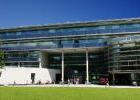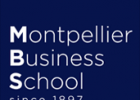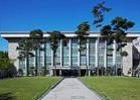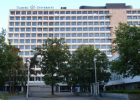Jorge Mario
亞洲,新加坡
IMBA Jorge Mario
Before leaving Taiwan, the university sent the list of MBA courses that were going to be offered in the Spring term. Out of those courses I wanted to take marketing courses so I decided to take:
Assigned course: Customer Relationship Management
Assigned course: Marketing Metrics and
Assigned course: Applied Market Research
Dropped course: Supply Chain Management
Customer Relationship Management: It is a light course with one reading and a group case every week. The topics are quite interesting if the student is interested in the services field such as hotels, airlines, banks, cell phones, etc where CRM has become very popular. The course also covers the common mistakes that several companies make when implementing CRM and how different tools could be designed for different needs. I liked the course a lot because it is focused on “treating different customers differently”. I liked a lot that the professor invited two guest speakers about how Social Media has revolutionized the CRM tools and how these platforms could be used in order to analyze the customers’ needs and purchasing patterns. The first speaker was from a company that is focused on Social Media and the second one was from a company offering an integrated software that allows the company keep a very efficient communication between its different levels with the purpose of serving the customer in a very fast way. Both speakers were very interesting and handled the topic quite good. There was no midterm and the Final project was an individual business plan implementing CRM on your previous job, a startup or a company that you might have enough information to make a reasonable 20 page report.
Marketing Metrics: I had my doubts about taking this course because it was scheduled on Saturday afternoons but I really liked this course. This was by far the most demanding course of the three courses taken, with 2 – 3 readings from Marketing Journals and a group case every week this course gives the student a very good view about the different marketing metrics that could be used to measure marketing performance. The professor, graduated from the University of Chicago knows a lot about the topic and even though sometimes it turns a little bit too scientific, using BQM tools, or different matrix to forecast customer recency, etc. I definitely recommend taking this course mainly because of the quality of the cases (Harvard and Stanford ones) that usually have an excel worksheet to give an answer with number support, and the topics covered that start from Balance Scorecard and goes on with product, price, distribution, salesforce and promotion metrics. The midterm was very tough, with 5 small cases that required to use the tools given in class, but because he is from one of the best universities in US, he usually give relative grades which means that even though your answer is not precise or exact, if the logic is quite good he doesn’t substract that many points. He also compares your performance with the other students in class so he usually tells you in which areas you are not absorbing the topics as well as your classmates. The final exam was as tough as the midterm.
Applied Market Research: Of the three courses this is the one that I enjoyed the most. I felt that I learned so much from this course. The professor with plenty of experience in Nielsen, specifically in Marketing Research, could answer every question of the students in such a comprehensive and easy to understand way. I valued a lot that the cases were not Harvard, IVEY or Stanford ones, because his cases had real data of real products such as Post Cereals, Ariel, Milo, etc. This data was given by the professor from his past experience in handling these products at Nielsen. I didn’t learn how to make a questionnaire, interview, etc. which is something that a student usually expect of this course because in the professor’s words those kind of skills could be gained by reading a book, and there are many of them in the market that he recommended, but analyzing data to structure successful strategies are skills that should be gained in the MBA program. I enjoyed the course that much that I was expecting to be Thursday to learn more about the topic and I felt strongly interested in looking at Nielsen for internships or job opportunities because that was a field that I previously didn’t pay attention at all but after this course I liked it a lot. The course didn’t have a midterm exam, it basically had a final exam with almost all the lessons covered. If the student paid a lot of attention in class, participated and read the lectures very carefully, the exam requires reasoning by using what was learned in the course. The course had 7 cases and the class was divided in 7 groups. Every group had to do one case and the rest (6) had to be submitted individually with the purpose of debating the group strategy based on your individual reasoning. I liked it a lot.
Supply Chain Management: (Dropped Course). I was very interested in this topic because I had no idea of Supply Chain Management, and I went to the first and second classes before the dropping period. The professor is a very recognized one with more than 25 years with experience in Supply Chain Management in companies such as HP and she is a judge in the Angel’s Gate TV Show that supports or rejects entrepreneur projects in Singapore based on their business plans. The content of the Syllabus was quite demanding and very good in my point of view. However on the second class I could see that the class was going to be a book-based one, so I decided to drop it. After two months of dropping the course I had conversations with several regular students that decided to keep studying the topic and what I felt was absolutely right. In their words the cases were long but the midterm and final was book-based. They think that the professor knows a lot about the topic but they felt she was unable to transmit her expertise and knowledge to the students.
Life in Singapore
I enjoyed life in Singapore very much. The city is so perfect. When I left Taiwan it was rainy and cold. When I arrived Singapore it was sunny and hot, but the weather is better than Taipei’s because even though it is also humid and very hot, the country doesn’t have mountains, so the wind from the sea is running in the city giving a refreshing experience when you are walking outside, that’s the difference. Taxis are more expensive, from the airport to the University it was around 25 Singapore Dollars (575NTD).








